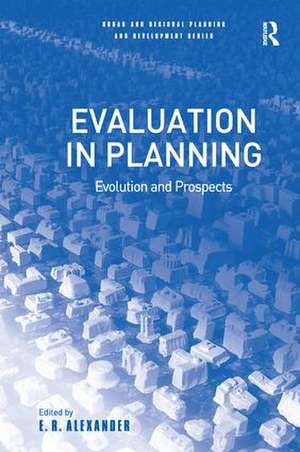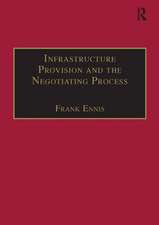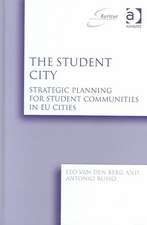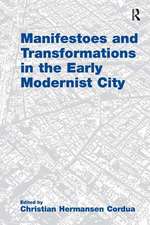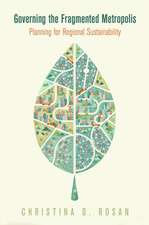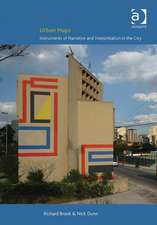Evaluation in Planning: Evolution and Prospects
Editat de E.R. Alexanderen Limba Engleză Paperback – 9 sep 2016
| Toate formatele și edițiile | Preț | Express |
|---|---|---|
| Paperback (1) | 338.33 lei 6-8 săpt. | |
| Taylor & Francis – 9 sep 2016 | 338.33 lei 6-8 săpt. | |
| Hardback (1) | 825.06 lei 6-8 săpt. | |
| Taylor & Francis – 9 iun 2006 | 825.06 lei 6-8 săpt. |
Preț: 338.33 lei
Preț vechi: 386.77 lei
-13% Nou
Puncte Express: 507
Preț estimativ în valută:
64.74€ • 67.59$ • 53.58£
64.74€ • 67.59$ • 53.58£
Carte tipărită la comandă
Livrare economică 04-18 aprilie
Preluare comenzi: 021 569.72.76
Specificații
ISBN-13: 9781138250123
ISBN-10: 1138250120
Pagini: 312
Dimensiuni: 156 x 234 x 21 mm
Greutate: 0.45 kg
Ediția:1
Editura: Taylor & Francis
Colecția Routledge
Locul publicării:Oxford, United Kingdom
ISBN-10: 1138250120
Pagini: 312
Dimensiuni: 156 x 234 x 21 mm
Greutate: 0.45 kg
Ediția:1
Editura: Taylor & Francis
Colecția Routledge
Locul publicării:Oxford, United Kingdom
Notă biografică
Ernest Alexander is Emeritus Professor of Urban Planning at the University of Wisconsin-Milwaukee, USA. He is currently practising in Israel as Principal of APD (Alexander Planning & Design), Tel-Aviv, Israel.
Recenzii
’This is a remarkable book in two ways. First, because the contributions - all by leading world experts in the field - collectively represent the definitive text on the art and science of evaluation in planning. Second, because they have been written to celebrate the lifetime achievement of the greatest single contributor to this important field, Professor Nathaniel Lichfield. Though not a contributor, his work permeates the entire book.’ Professor Sir Peter Hall, Bartlett Professor of Planning and Regeneration, University College London, UK '...a significant contribution to our knowledge. For policymakers, scientists and planners this book is mandatory reading.' Scienze regionali
Cuprins
Introduction; 1: Evolution and Status; 1: History and Theory; 1: Evolution of Theory and Practice; 2: The Ethics behind Evaluation; 3: Evaluations and Rationalities; 1: The Normative Context; 4: Planning, Evaluation and the Public Interest; 5: Pitfalls in Planning and Plan-evaluation; 6: Towards Sustainable Planning; 1: Discussing Methods; 7: Evaluation of Project Proposals When the Objective is Poverty Alleviation; 8: Evaluating Plans; 2: Applications in Practice; 2: Multi-Criteria Decision Support; 9: Values and Effects of Local Identity Preservation; 10: Methods for Evaluating Development Scenarios; 2: Impact Analysis and Beyond; 11: Issues in Large Scale Project Evaluation; 12: Impact Assessment of Trans-European Networks on Area Development; 13: From Impact Evaluation to Dynamic Planning; 2: Conclusion; 14: Problems and Prospects
Descriere
Evaluation is a critical stage in urban and regional planning and development, with the consideration of alternative proposals essential for informed debate and decision. The craft of pre-development evaluation has long been influenced by Nathaniel Lichfield, and in his honour, this book brings together prominent researchers and practitioners to discuss evaluation in planning: its conceptual foundations and subsequent development, its strengths and persisting dilemmas, and its best practices and their potential for improving future planning and development.
